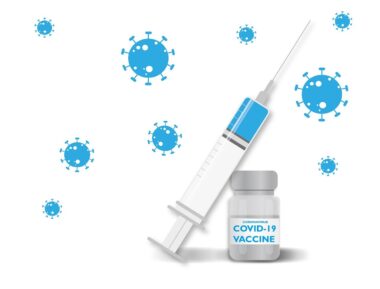The Science Behind Non-Core Vaccines for Dogs
In the world of canine healthcare, vaccinations play an essential role in preventing various infectious diseases. While core vaccines are necessary for every dog, the category of non-core vaccines includes immunizations that be important but are administered based on the individual dog’s needs. Non-core vaccines safeguard against diseases such as Bordetella (kennel cough), Lyme disease, and Leptospirosis. These vaccines are not universally required for all dogs, yet they can be extremely beneficial in certain environments. For instance, dogs that frequently visit dog parks or boarding kennels would greatly benefit from Bordetella protection. Additionally, dogs living in areas with high rates of tick-borne diseases need Lyme disease vaccinations. It is crucial for pet owners to consult with their veterinarian regarding non-core vaccinations to ensure their dog’s health needs are met. A tailored vaccination schedule based on risk factors and lifestyle is essential for maintaining optimal health. Older dogs or those with health issues might require different assessments, making veterinary advice indispensable for preventing potential diseases.
Understanding Non-Core Vaccines
Non-core vaccines, unlike core vaccines, are administered based on a dog’s risk exposure and lifestyle. Each vaccine targets specific infectious diseases relevant to the individual dog’s environment and behavior. For instance, the Bordetella bronchiseptica vaccine is designed to combat kennel cough, a highly contagious respiratory disease. Dogs frequently socializing with other dogs, particularly in kennels or dog parks, are more susceptible to contracting this condition. On the other hand, Lyme disease is transmitted through ticks, so dogs living in high-tick areas should be vaccinated against it. Similarly, Leptospirosis is a disease that can be contracted through water contaminated with the bacteria from infected wildlife. Veterinarians may recommend these non-core vaccines depending on the dog’s exposure risks. The administration of these vaccines is vital not just for individual dogs, but also for the community at large, as it contributes to herd immunity. Owners must stay informed about the risks to their dogs and revise their vaccination strategies in consultation with their veterinarian.
Staying aware of the prevalent diseases in your geographical area is instrumental for determining which non-core vaccines should be administered. For example, if your dog enjoys swimming in lakes or rivers, it is wise to consider the Leptospirosis vaccine due to potential contamination. If you take your dog camping or hiking in tick-infested regions, ensure your dog is protected with Lyme disease vaccinations. Because the canine vaccination landscape can shift due to emerging diseases and variations in regional outbreaks, pet owners should regularly consult their veterinarians for the latest recommendations. Moreover, it is essential to remember that non-core vaccines are not mandatory for all dogs, so the decision should be made based on careful risk assessment. Maintaining an open dialogue with your veterinary professional enables you to tailor your dog’s vaccination schedule effectively, ensuring they receive the appropriate non-core vaccines when necessary. Success in keeping your pet healthy relies on the collaboration between pet owners and veterinary professionals in making informed decisions regarding non-core vaccines.
Frequency of Non-Core Vaccinations
The frequency with which non-core vaccines should be given can vary considerably depending on the specific vaccine and individual circumstances of each dog. For example, the Bordetella vaccine may need to be administered more frequently than others, especially for dogs who are regularly exposed to congregated environments like daycare or boarding. In contrast, vaccines like those for Lyme disease may only require annual or biannual boosters. Evaluating your dog’s lifestyle will impact how often these non-core vaccinations are scheduled. Vaccination timing is important to ensure immunity levels remain high and protect against specific diseases. Likewise, it is essential to monitor any changes in your dog’s exposure to infectious diseases, which may result in updates to your vaccination schedule. Consulting with your veterinarian can help clarify the necessary frequency for each specific non-core vaccine for your dog, tailoring it to ensure optimal effectiveness for your pet. Following vaccination guidelines is paramount to providing maximum disease protection while minimizing the risks associated with preventable conditions.
A comprehensive understanding of potential side effects associated with non-core vaccines aids pet owners in making informed decisions. While most vaccines are quite safe, reactions can occasionally occur. Mild side effects may include local swelling, lethargy, or low-grade fever, which generally resolve quickly. However, more serious reactions, though rare, can involve anaphylaxis or other severe responses. Pet owners should be observant and monitor their dog’s behavior following vaccination. If there is a concerning reaction, prompt veterinary attention is critical. Make sure to discuss any potential side effects with your veterinarian prior to vaccination, ensuring all questions and concerns are adequately addressed. Being aware of your dog’s health history, including possible allergies or sensitivities, arms your veterinarian with necessary information to guide decisions regarding non-core vaccines. Ultimately, a well-informed owner paired with a knowledgeable veterinary professional will optimize the health decisions made for the dog. Ensuring that your furry friend receives the needed vaccines while understanding the risks involved provides a solid foundation for maintaining overall wellness.
Conclusions on Non-Core Vaccines
In conclusion, non-core vaccines serve a vital role tailored to individual dogs based on lifestyle, exposure risk, and environment. Given the variations in susceptibility to specific diseases among dogs, the importance of consultation with a veterinary professional cannot be overstated. Understanding which vaccines are necessary ensures that dogs not only receive adequate protection but also avoid unnecessary vaccinations that do not benefit their health. Every dog is unique, and so are their vaccination needs. The decision-making process should involve careful consideration of disease prevalence in the surrounding area, your dog’s activities, and any pre-existing health conditions. The responsible administration of non-core vaccines aids in reducing overall disease spread while ensuring the dogs remain healthy and thriving. Furthermore, ongoing education for dog owners fosters a deeper understanding of what truly benefits their pets in terms of health and wellness. When in doubt, do not hesitate to seek veterinary advice, and always stay proactive with your dog’s health care needs. Such an approach will make a significant difference in ensuring their health and longevity.
The field of veterinary care is continuously evolving, and staying informed on best practices for canine vaccinations is essential. Non-core vaccines are just as crucial as core vaccines when assessing holistic dog health. Acknowledging that each dog has its own health journey allows for tailored vaccination approaches, addressing not only immediate health needs but also long-term wellness. Collaboration with veterinary professionals creates a framework for effective planning of vaccination strategies. It is every dog owner’s responsibility to become educated about vaccination types and their benefits. Regular check-ins with your veterinarian regarding your dog’s vaccinations will help avert any disease risks. Investing time in understanding non-core vaccines will encourage responsible pet ownership and provide a happier, healthier life for dogs. Whether it is the prevention of kennel cough, Lyme disease, or other preventable conditions, knowledge is a powerful tool. Stay vigilant and proactive in your efforts to care for your canine companion, incorporating relevant vaccinations as part of comprehensive wellness. With education and professional guidance, we can maximize the health protection for our dogs.
Pet ownership entails responsibility, and part of that is ensuring puppies and dogs receive the appropriate vaccines, including non-core ones when indicated. Research and communication play significant roles in this process, allowing one to both comprehend and navigate complex health matters surrounding pets. Being proactive about vaccinations, understanding their importance, and identifying the right ones for your dog ultimately enhance their quality of life. While core vaccines are essential for all dogs, non-core vaccines become a personalized approach that tailors medical care to the specific circumstances and environment of each dog. Focusing on the needs of every individual dog while embracing the broader community helps ensure that all dogs remain healthy. To promote a community of healthy pets, awareness regarding vaccinations among dog owners contributes to building a more resilient overall canine population. Take the time to discuss your dog’s needs with your veterinarian, ensuring their vaccinations, both core and non-core, align with their lifestyle. In this manner, you are promoting your pet’s long-term health and enhancing their enjoyment of life. Ultimately, the well-being of dogs hinges on collective efforts between individual pet owners and veterinary professionals.





